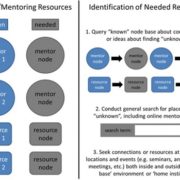
Mapping a Mentoring Roadmap and Developing a Supportive Network for Strategic Career Advancement
Careers, Careers - Blog, Mentoring0 Comments
/
By Beronda L. Montgomery, Michigan State University, East Lansing, USA
From SAGE Open, Vol 7, Issue 2, First published date: June-03-2017
http://journals.sagepub.com/eprint/izCuY6fGpyIi7B5JREqZ/full
Abstract
This article presents a proactive, individual-centered mentoring model which meets…

Why can't scientists be better communicators? (SciAm blog)
Blog, Careers, Education General Public, Skills and Advice, Writing/Reviewing/Publishing/Communicating
Author Katherine Wu highlights some of the challenges that interfere with scientists communicating.
She says, "Both scientists and non-scientists must commit to not only communication, but also a drastic reassessment of how we communicate with each other. I believe mending the rift starts with…

8 things to consider for early career researchers (by Steven Burgess)
Careers, Careers - Blog, Finding Your Next Position, Postdocs, Skills and AdviceBy Steven Burgess, posted on Medium
"As I am coming to the end of my time as postdoc I have been thinking a lot about what I have learnt and perhaps wish I knew when I started out. Inspired by the German poet Rainer Maria Rilke’s ‘Letters To A Young Poet’, I am noting down some thoughts which…
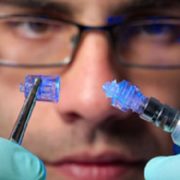
Scientific integrity resource guide
Blog, Careers, Skills and AdviceAbstract
Scientific integrity is at the forefront of the scientific research enterprise. This paper provides an overview of key existing efforts on scientific integrity by federal agencies, foundations, nonprofit organizations, professional societies, and academia from 1989 to April 2016. It serves…
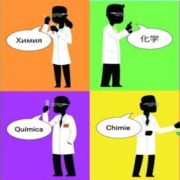
How to break down cultural and language barriers in the lab (C&EN)
Careers, Careers - Blog, Workplace DiversityVolume 95 Issue 20 | p. 30
Issue Date: May 15, 2017 | Web Date: May 9, 2017
By Chemjobber
The best science happens when all hypotheses are considered and all voices are heard. Not only that: If important safety information isn’t communicated among all lab members, someone could get hurt.
How…
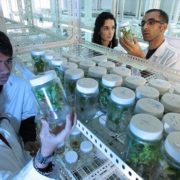
Ten simple rules to make the most out of your undergraduate research career (PLOS)
Blog, Careerpaths, Careers, Careers - Blog, Careers in Plant Science, Skills and AdvicePLOS Computational Biology has a series of "Ten Simple Rules" articles.
Here is one for undergraduate researchers,
"Ten simple rules to make the most out of your undergraduate research career" by Megan Yu and Yu-Min Kuo
Here are the rules, read the article for elaboration
Rule 1:…
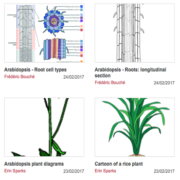
A community repository of plant illustrations
Blog, Research Blog, Writing/Reviewing/Publishing/CommunicatingGuest post by Erin Sparks, Guillaume Lobet, Larry York and Frédéric Bouché
It is midnight on a cold winter evening and you are scheduled to give a seminar at 8 am the next morning. All you are missing to complete your presentation is one last graphic to illustrate your conclusions. You wearily…

Plain-language summaries of research
Blog, Careers, Careers - Blog, Skills and Advice, Writing/Reviewing/Publishing/CommunicatingThe editorial team at eLIFE has shared some of their tips for writing about your research in an accessible way. In addition to reporting on the outcomes of their plain-language summaries (eLIFE Digests), they provide an excellent set of guidelines to help you write your own plain-language summary. All…

Communication: Antisocial media (Nature Careers)
Careers, Careers - Blog, Writing/Reviewing/Publishing/CommunicatingCommunicating about science (or anything) on social media sites can expose you to rudeness and worse. In this column by Amber Dance from Nature Careers, several high-profile scientists and science communicators share how they avoid and cope with conflicts.
Read more here.

